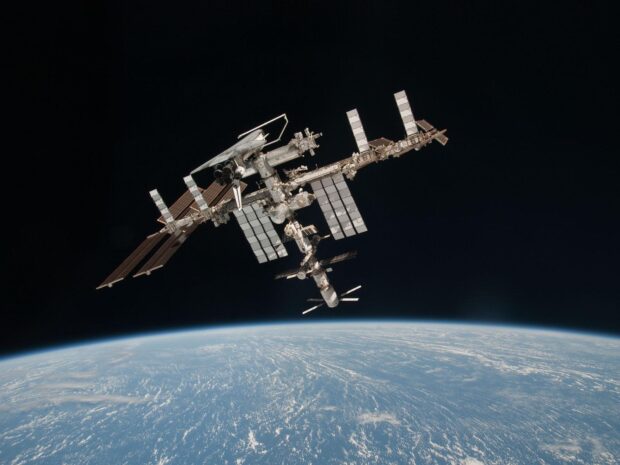Because I am an awful nerd, last week I compiled a playlist of space-themed jazz to listen to on my drive to work at the UK Space Agency – Sun Ra, Pharoah Sanders, Herbie Hancock.
Besides getting me some odd looks at traffic lights, it got me thinking: about the cultural position of space; about where space is located as an intellectual concept, as a social construct, as both a site and subject for study. Who owns space – not literally or legally (though this too is an interesting topic for conversation and space law is a growing discipline – Monica Grady of the OU gives a good introduction, but symbolically?
In the popular imagination, space has provided a rich seam of inspiration, from the high-brow to the low, from the admittedly rather pretentious music referenced above, to art, books, fashion, film, design et cetera. People love space. Space exploration inspires really nice graphics, like this lovely thing the BBC recently published - itself a kind of update of the famous Powers of Ten film from 1977.
Yet, somehow this, ‘cultural imagination’ of space seems divorced from the actual reality of space exploration as it is practised by an ever-growing community of engineers and scientists today.
Perhaps this is for good reason: after all when launching people and expensive technology into space we prefer our engineers to adhere to proper standards, applying the laws of physics and respecting the boring-but-necessary conventions of testing and qualification, rather than fantastical speculation or sci-fi whimsy. However, much ink has been spilled on the wonder and excitement of space exploration, and many an otherwise clear-headed scientist has asserted the ‘deep cultural and philosophical significance of humans venturing into space’, and similar such sentiments, often in quasi-religious terms, without backing this up with any rigorous philosophical analysis of why it should be deemed significant/valuable in this respect (see this article for a good example of misleading claims of ‘philosophical debate’.)
The ‘rational’ and concrete side of space exploration – the social, economic, scientific and technological benefits – are presented, picked and pored over in great detail, and it is these which fundamentally justify our investment in space programmes. Internal government business cases are hardly great page-turners. As one might hope, they’re based on dry facts and figures: return on investment, job creation, growth projections. (As an aside, working for the Agency opens one’s eyes to the huge amount of administrative and organisational work – always very important but frankly not always very exciting – necessary to support the world-changing advances made by our scientists and engineers.)

As important as these considerations are, I think they result in the ‘space sector’ – that is, the industrial and scientific community engaged with building, operating and utilising spacecraft – seeing space as exclusively the domain of science and technology. However, openness to broader ownership of space – on a meaningful level, deeper than the surface recognition and obligatory nods to STEM outreach which seem to accompany every new space project – could benefit everybody.
Science is of course a major driver to go to space, and technology enables us to do so. So there may reasonably be an assumption of space exploration as being ‘for and by’ science and technology. And, despite the much-heralded reductions in the cost of access to space, significant funding is needed to explore space beyond low earth orbit – on a scale only governments or mega-corporations can provide.
Perhaps this has led to a lack of critical reflection or thorough analysis of the ‘philosophical’ / ‘inspirational’ / ‘man-has-an-innate-drive-to-explore’-type arguments often trotted out in support of space exploration and this remains an under-explored area, although a pretty good primer is provided by Dr. Gonzalo Munevar. I think this is a shame, as such arguments might well stand up to scrutiny should we bother to pursue them, and actually we in the space sector are missing a trick by unconsciously presuming that space is ‘ours’, by presuming sole-ownership of space – only occasionally stopping to casually refer to ‘cultural value’, whatever that may mean.
By (knowingly simplistic) analogy, it’s a bit like cartographers and geologists presuming to own the mountains, or urban planners and geographers presuming ownership of our cities. They belong to all of us; space belongs to all of us. I don’t expect artists, musicians or poets to give us new fundamental insights into the nature of the physical universe, but they (and others) can certainly give new avenues for exploring it; new interpretations of the dizzying data we accumulate; and a greater depth and breadth of reasons for doing so.
For the latest updates on UK space exploration follow us on Twitter, Facebook or Google+ and sign up to our email alerts.